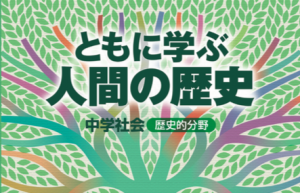We Are Soldiers, Bolting Across the Heavens: Women’s Contradictory Empowerment and Sisterhood in Shirai Yumiko’s “Wombs”
Memo #404 By: Akiko Hirao – akiko.hirao [at] gmail.com Women “pregnant” with the fetus of an alien species that allows them to teleport instantaneously as essential transporters of troops and supplies in a desperate war against oppressors – this is the premise of the award-winning manga by Shirai Yumiko, Wombs. An allegorical tale of conflicting […]
Abe Shinzō and Japan’s Proactive Contribution to Realism
Memo #403 By: Giulio Pugliese – giulio.pugliese [at] kcl.ac.uk Abe Shinzō’s comeback in December 2012 triggered a new dynamism in Japanese security practices. Relative domestic political stability, a deteriorating regional environment, and Abe’s appreciation for high politics has enabled the Japanese government to push for constitutional reinterpretation, pass embattled security legislation, and inaugurate new security […]
Why is the ‘Comfort Women’ dispute a never-ending story?
Memo #394 By: Ji Young Kim – jiyoungkim333 [at] gmail.com and Jeyong Sohn – sohn [at] rikkyo.ac.jp On December 28, 2015, the “comfort women” problem, one of the major stumbling blocks in Japan-South Korea relations, seemed to have been resolved through a governmental agreement between the two countries. Despite its characterization as a “final and […]
Local Governments and the Politics of LGBT Issues in Japan
Memo #393 By: Yasuo Takao – Y.Takao [a] curtin.edu.au In Japan, there was a history of open homosexuality as described in literary evidence dating back from the Heian period (794 – 1185). But in the present day, the Japanese legal system has continually ignored sexual minority issues, while not explicitly criminalizing homosexual behavior (except for […]
Reflection Requires Reading: A New Japanese Middle School History Textbook
Memo #379 By:Hyung Gu Lynn – hlynn [at] mail.ubc.ca Despite the regular protests by South Korean and Chinese governments there remains confusion about Japanese history textbooks in terms of their production, approval, adoption, reception, and contents. Separate teams work to produce texts for private publishers, and these are approved or declined by the Ministry of Education, […]
The Heroism in Edge of Tomorrow
Memo #378 By: Cyrus Huiyong Qiu – cyrusqiu [at] mail.ubc.ca Doug Liman’s epic action sci-fi movie Edge of Tomorrow (starring Tom Cruise and Emily Blunt) in 2014 was the very first adaptation of Japanese “light novel,” in this case one titled All You Need is Kill, by Hiroshi Sakurazaka. The story is about humanity’s fight to […]
What Appears After the End of the World? Post-Humanity in Japanese Anime, Manga, and Novel of the 1980s
Memo #375 By: Shota Iwasaki – shota.iwasaki [at] alumni.ubc.ca Depictions of cyborgs, extraterrestrials, and dystopias in fiction are not about the future, but are about contemporary society and their current transformations. Given this, what fears, hopes, and desires did Japanese science fiction at the height of affluence in the 1980s reflect? After radical student movements and rapid economic […]
“The Japan Choice:” Will Australia choose Japanese submarines for its future defence force?
Memo #373 By: Thomas Wilkins – thomas.wilkins [at] sydney.edu.au Nothing is exciting strategic commenters in Australia more than the long drawn out process of competitive evaluation of rival boats for its Collins-class submarine replacement programme. The choice of sub represents a roughly A$50bn investment and the future of Australian naval deterrent capacity into the 2050s. […]
Moomins Multiplied: How Finnish art became popular in Japan
Memo #371 By:Hyung Gu Lynn – hlynn [at] mail.ubc.ca The Moomin stories by Tove Jansson are landmark works of Finnish children’s literature/art. But Japan is the largest market for Moomin goods in the world and has served as a second home since the late-1960s. The Moomins’ popularity in Japan can be explained through several multiplicities, rather […]
Moomins Ascendant in Asia: Interview with Moomin Characters Ltd. Managing Director Roleff Kråkström
Memo #370 Featuring Roleff Kråkström – Roleff.Krakstrom [at] moomin.fi The Moomins, a family of trolls living in a valley with other colourful characters, have been beloved in their home country of Finland since the famed artist Tove Jansson published her first book featuring these characters in 1945. The stories have been translated into 50 different languages, […]









